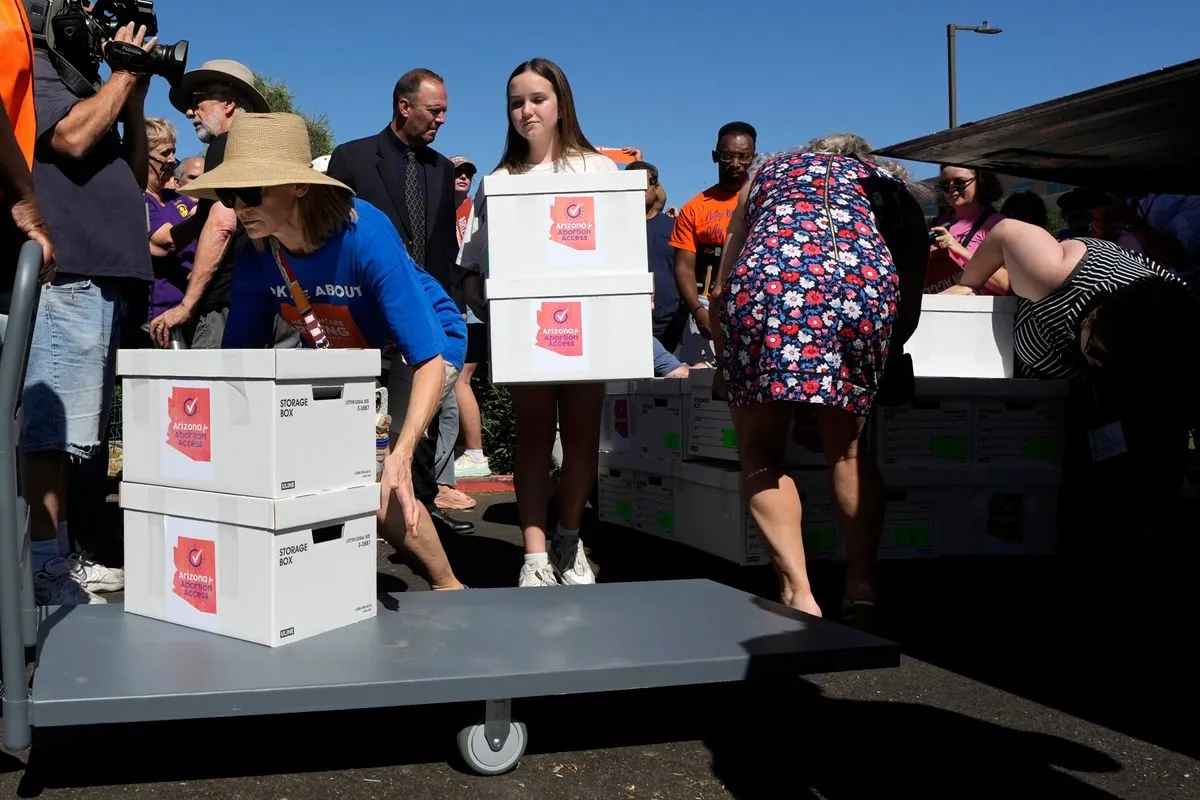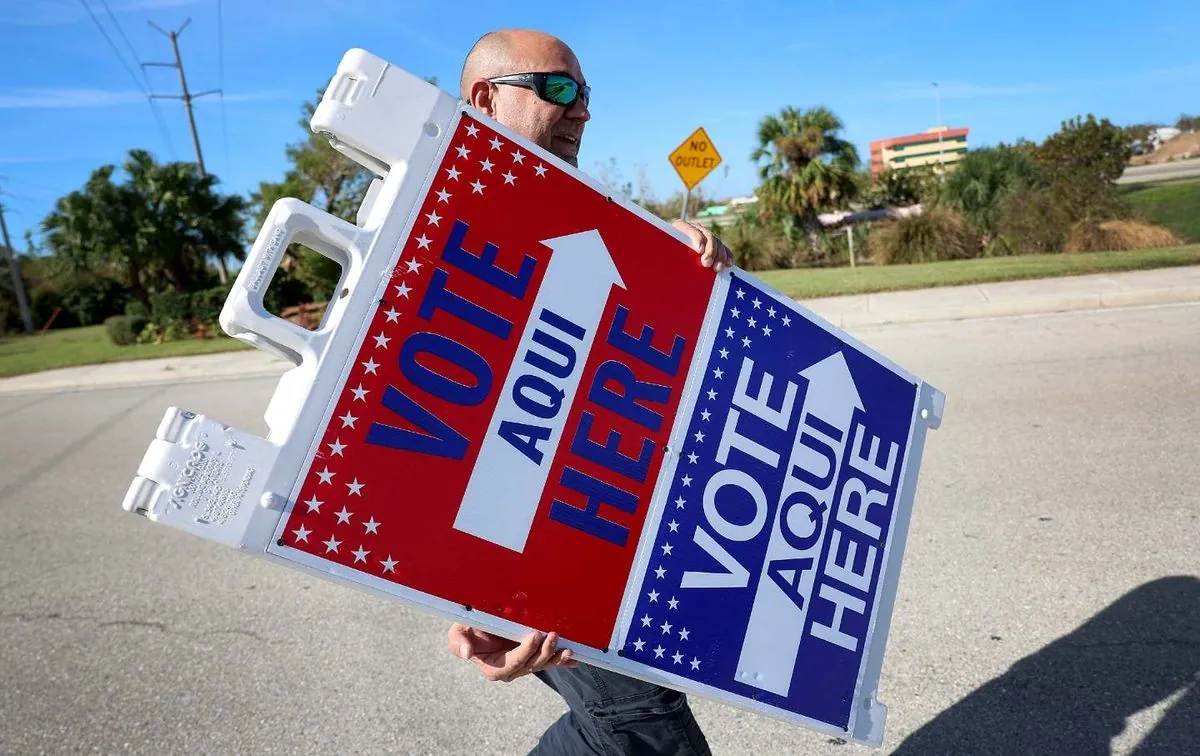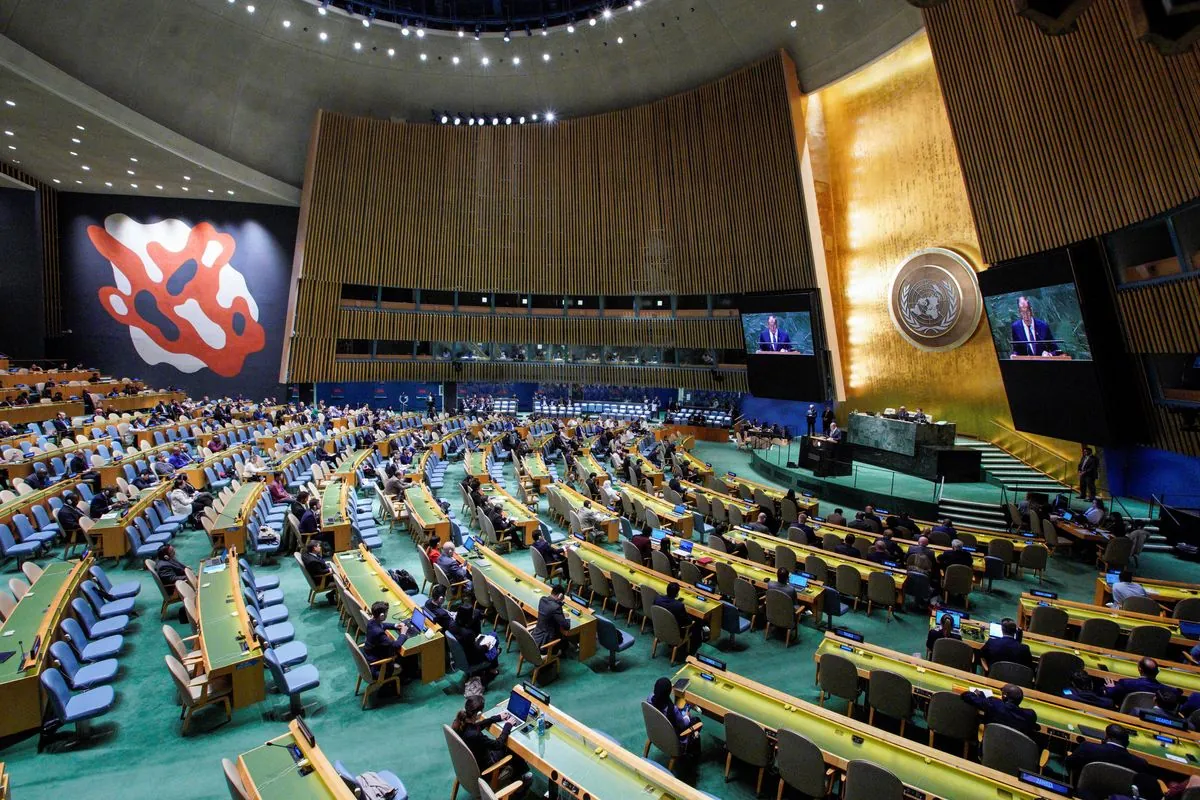Abortion Rights Campaigns Outpace Opponents in Fundraising for 2024 Ballot Measures
Abortion-rights groups have raised nearly $108 million for 2024 ballot measures, dwarfing opponents' $14 million. However, in Florida, the most expensive campaign, this advantage may not guarantee success.

In the lead-up to the November 5, 2024 elections, abortion-rights advocates have significantly outpaced their opponents in fundraising for ballot measures across nine states. According to data compiled by Open Secrets and analyzed by The Associated Press, supporters of these amendments have amassed nearly $108 million, compared to $14 million raised by opposition groups.
This financial disparity reflects a broader trend in the ongoing debate over reproductive rights in the United States. Since the Supreme Court's decision to overturn Roe v. Wade on June 24, 2022, there has been a surge in state-level efforts to either protect or restrict abortion access. As of 2024, 26 states have laws that could be used to limit abortion, highlighting the importance of these ballot initiatives.
However, Kelly Hall, executive director of The Fairness Project, cautions that this financial advantage may not translate directly into campaign success. "The apparent differential on campaign finance reports does not reassure me that we will not see large, late spending on these campaigns," Hall stated.
The situation in Florida exemplifies the complexities of these campaigns. Despite abortion-rights groups raising over $60 million compared to opponents' $9 million, unique challenges persist. Florida requires a 60% voter approval threshold for the amendment to pass, and the state Republican Party has invested heavily in opposing the measure.

Interestingly, this campaign landscape has seen a shift in the involvement of major anti-abortion organizations. The Concord Fund and Susan B. Anthony Pro-Life America, which spent a combined $40 million opposing a similar measure in Ohio last year, have not been as financially active in the current campaigns.
"The abortion industry and their allies bring massive funds to the table. Those who are trying to fight off these extreme amendments have an uphill climb."
The fundraising efforts for these ballot measures have attracted notable donors. Marsha Zlatin Laufer, a frequent contributor to liberal causes, has given more than $9 million in Florida alone. On the opposing side, U.S. Senator Pete Ricketts and his mother, Marlene Ricketts, have each contributed at least $1 million in Nebraska.
It's worth noting that the term "reproductive rights" was first used at the United Nations International Conference on Human Rights in 1968, predating many of the current legal battles. The evolution of abortion rights in the U.S. has been marked by significant milestones, including Colorado becoming the first state to legalize abortion in 1967, six years before Roe v. Wade.
As the campaigns enter their final weeks, the impact of this fundraising disparity remains to be seen. While money plays a crucial role in political campaigns, the outcome of these ballot measures will ultimately be decided by voters on November 5, 2024.


































